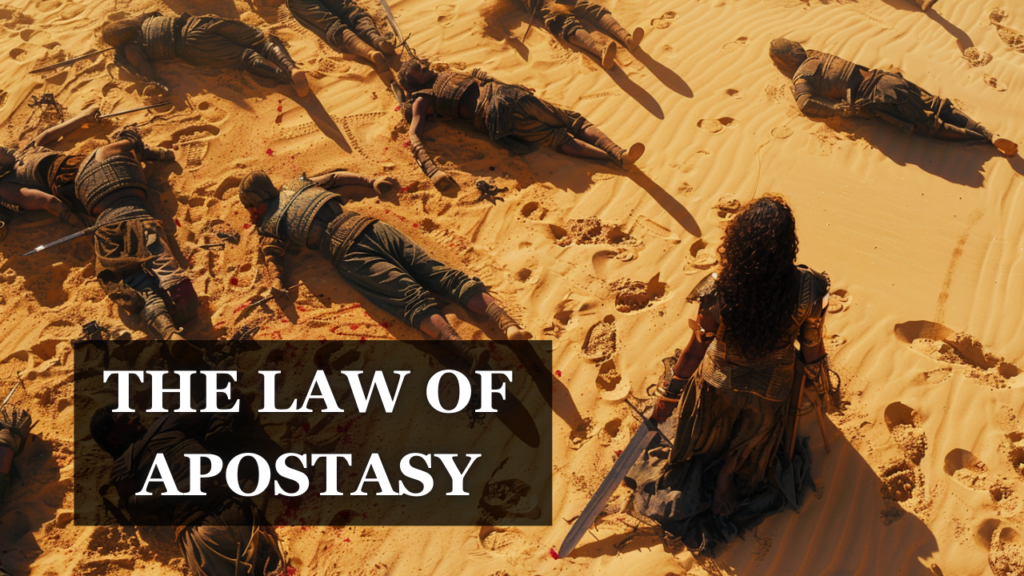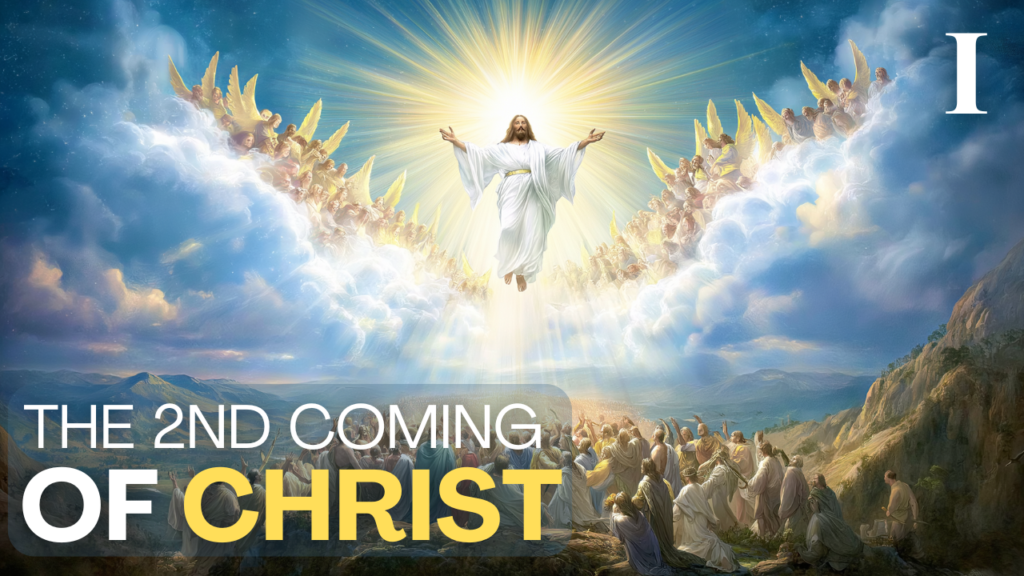Background
In a previous blog, I discussed how a Sunni individual proposed a challenge to show him “one Raifidi within the chains of al-Bukhari.” (see below)
One of these individuals was ʿAbbād ibn Yaʿqūb. The ilm al-rijal (biographical evaluation) authorities note that he was identified as a Rafidi Shi’i who engaged in extreme positions – cursing Uthman ibn Affan, denouncing many of the salaf (early Muslims), and declaring that two of the Prophet’s companions were destined for hellfire.
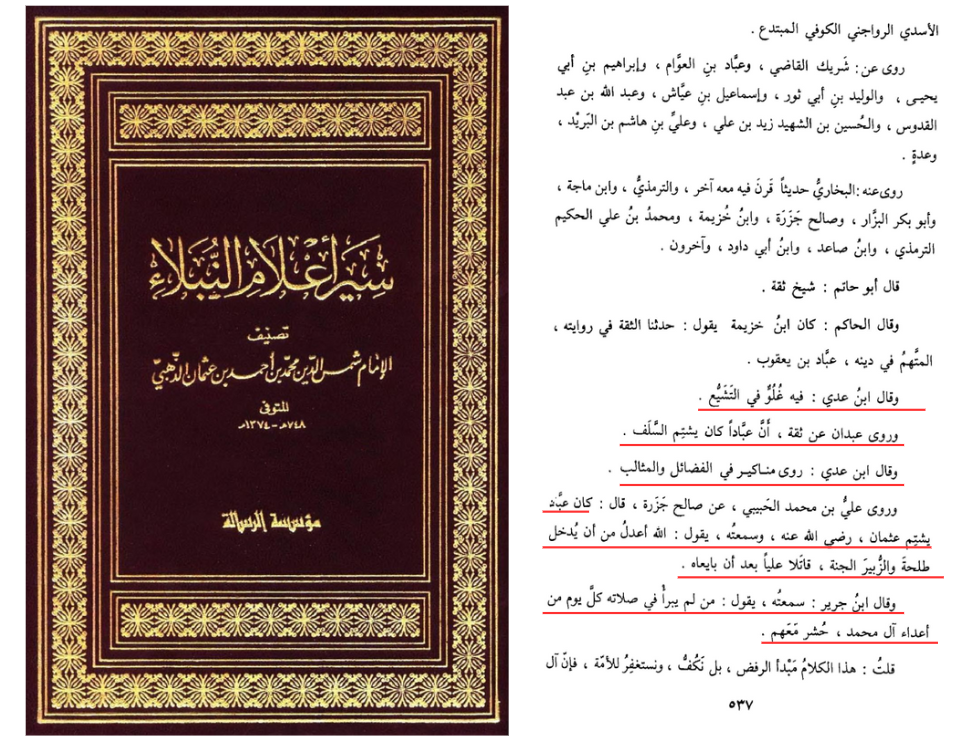
Translation:
Ibn ‘Adi said: “He had extremism in Shi’ism.”
‘Abadan narrated from Fiqh that ‘Abad used to accuse the Salaf (early Muslims).
Ibn ‘Adi said: “He narrated strange and rejected reports regarding virtues and demands.”
‘Ali ibn Muhammad al-Habishi narrated from Salih Jazrah, who said:
“‘Ubayd used to curse ‘Uthman (may God be pleased with him), and I heard him say:
‘God is too just to admit Talha and Zubayr into Paradise.’
Then he swore allegiance to ‘Ali after pledging to him.”
Ibn Jarir said:
“I heard him say: ‘Whoever does not curse the enemies of the family of Muhammad in his daily prayers will be resurrected with them.'”
Narrations of ʿAbbād In the Kutub al-Sittah + Musnad of Ahmad
In these Sunni compilations, we find ʿAbbād within 7 of these narrations:

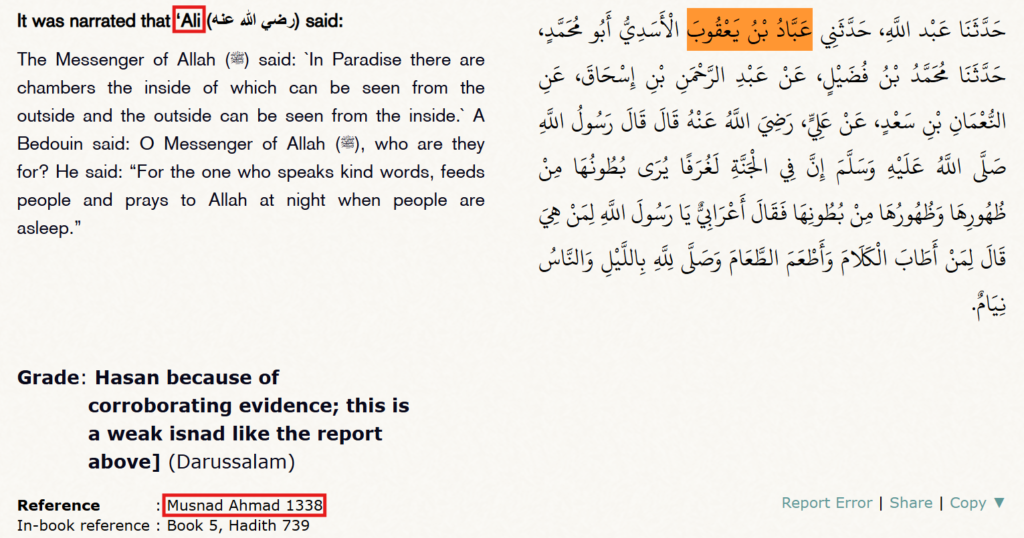
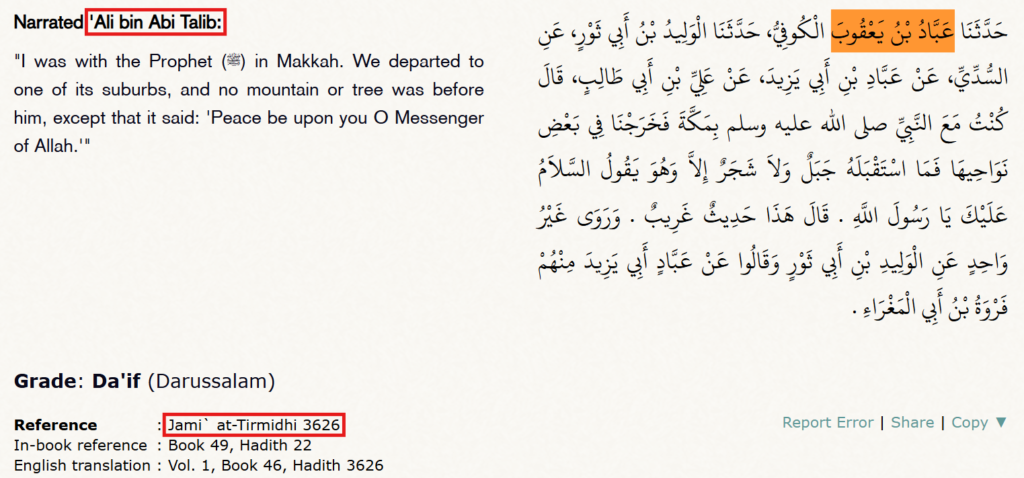



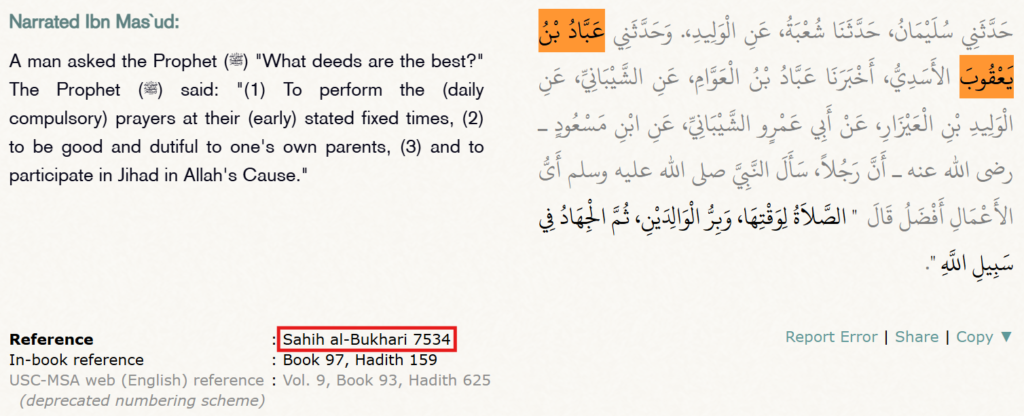
In four of the narrations he’s mentioned in (SIM 1468, JT 509, JT 2212, JT 3626), hadith critics have decided to grade the hadith da’if (weak). In two of the Musnad narrations, the chains of the hadith are weak but graders have accepted the narration due to corroborating hadith without the problematic narrators in the chains (MA 1338, 1339). In the other narration, Bukhari accepts him in a chain of transmission for Sahih al-Bukhari 7534.
In 2/7 of these, he attributes the narrations to Ibn Masud. In 4/7 of these, he attributes the narrations to Ali. In one of them, he attributes the narration to Imran b. Husein.
Double Life
We have ʿAbbād, not only narrating Sunni hadith, but narrating Shia hadith as well. The following is from the book, “الأصول الستّة عشر” (The Sixteen Principles), authored by multiple narrators (عدة محدثين). It is from Volume 1, Pages 15-19 & can be found here: https://lib.eshia.ir/15023/1/15
The Glorified Imams
‘Abbad from ‘Amr from Abu Hamzah:
He said: I heard ‘Ali bin al-Husayn (peace be upon him) say:
“Indeed, God created Muhammad, ‘Ali, and eleven of his descendants from the light of His greatness. He established them as ethereal beings in the radiance of His light, worshipping Him before the creation was made. They glorified and sanctified God, and they are the Imams from the lineage of the Messenger of God.“
Prophecy of an Imamate of ‘Ali’s Progeny (p.15)
‘Abbad, raising it to Abu Ja‘far (peace be upon him), who said:
The Messenger of God (peace and blessings be upon him) said:
“From my progeny, there will be eleven noble leaders, enlightened guides. The last of them is the one who will rise with the truth. He will fill the earth with justice as it had been filled with oppression and tyranny.”
The Stars of Guidance (p.15)
‘Abbad narrated from Amr ibn Thabit, from Abu Ja‘far, from his father, from his forefathers, who said:
The Messenger of God (ﷺ) said:
“The stars in the sky are a source of security for the inhabitants of the heavens. When the stars disappear, the people of the heavens will face what they dislike. Similarly, the stars from my household—eleven stars from my progeny—are a source of security on the earth for its inhabitants, preventing it from sinking with them. But when the stars of my household disappear from the earth, the people of the earth will face what they dislike.”
The Imams as Pillars of the Earth (p.16)
‘Abbad narrated from Amr, from Abu al-Jarud, from Abu Ja‘far (ع), who said:
The Messenger of God (ﷺ) said:
“I, along with eleven of my descendants, and you, O Ali, are the pegs (pillars) of the earth—its stabilizers, its mountains. God has anchored the earth with you so that it does not sink with its inhabitants. But when the eleven from my progeny depart, the earth will sink with its people, and they will not be given respite.”
The Necessity of an Imam for the World’s Stability (p.16)
Abbad narrated from Amr, from his father, from Abu Ja‘far (ع), who said:
I heard him say:
“If the earth were to remain for a single day without an Imam from us, it would sink with its inhabitants, and God would punish them with the severest of punishments. This is because God has made us His proof (حجة) on His earth and a source of security for its people. As long as we remain among them, they will be safe from calamities and destruction. But when God decides to annihilate them without delay, He will remove us from among them and raise us to Him. Then, He will deal with them as He pleases and desires.”
The Superiority of Karbala Over the Kaaba (p.16)
‘Abbad narrated from Amr ibn Bayya‘ al-Sabiri, from Ja‘far ibn Muhammad (ع), who said:
The land of the Kaaba once said: “Who is like me? The House of God has been built upon me! People from all over the world come to me. I have been made a sacred and safe sanctuary.” God then revealed to it: “Stop and be still! By My might, the virtue you have been given over what I have granted to the land of Karbala is no more than the amount of water a needle holds when dipped into the sea. Had it not been for the soil of Karbala, you would have had no virtue. Had it not been for the one whom the land of Karbala contains, I would not have created you, nor would I have created the House (Kaaba) upon which you boast. So, remain humble, modest, and lowly before the land of Karbala. Otherwise, I will cast you down into the fire of Hell.”
The Sacredness of Karbala Before the Creation of the Kaaba (p.17)
‘Abbad narrated from Amr, from his father, from Abu Ja‘far (ع):
God created the land of Karbala 24,000 years before creating the land of the Kaaba. He sanctified and blessed it, and from the very beginning of creation, it has remained holy and blessed. It will continue to be so until God makes it the best land in Paradise, the most superior residence where He will house His chosen ones in Jannah.
Karbala as a Sacred Sanctuary Before the Kaaba (p.17)
‘Abbad narrated from a man, from Abu al-Jarud, who said: Ali ibn al-Husayn (ع) said:
“God designated the land of Karbala as a sacred, safe, and blessed sanctuary 24,000 years before He created the land of the Kaaba. When God transforms the earth (on the Day of Judgment), He will elevate Karbala as it is—pure and luminous— placing it in the finest garden of Paradise. It will become the most superior dwelling in Jannah, inhabited only by the Prophets, the Messengers, or the most resolute among them (أولو العزم من الرسل). Indeed, it will shine among the gardens of Paradise, just as a radiant star glows among the stars for the people of the earth. Its light will be so great that it will illuminate the sight of all the people in Jannah. It will proclaim: ‘I am the sacred land of God and the blessed soil, that embraced the master of martyrs and the youth of Paradise.'”
Umar ibn al-Khattab’s Orders Against Non-Arabs (p.17)
‘Abbad narrated from Safeer al-Hariri (or Sufyan), from his father, from Ja‘far al-Sadiq (ع):
Umar ibn al-Khattab sent a decree to his governor, Qudamah, ordering that no non-Arab (Mawali) should be allowed to cross a certain boundary— if they did, they were to be executed. A messenger came while a man from the Mawali of al-Azd, a plasterer, was present with Qudamah. So, Qudamah brought him forward and beheaded him.
Abu Bakr’s Order to Kill Imam Ali (ع) (p.18)
‘Abbad Abu Sa‘id narrated from ‘Amr ibn Thabit, from Abu Ishaq, from Sa‘id ibn Jubayr, from Ibn Abbas:
Abu Bakr commanded Khalid ibn al-Walid, saying: “If I survive, strike the neck of Ali.” However, Abu Bakr changed his mind, and called out: “O Khalid, do not do anything I ordered you!” Imam Ali (ع) turned to Khalid, cursing him: “O Khalid! Would you really have done it?” Khalid replied: “Yes, by God!” Imam Ali (ع) responded: “My killer is far more wretched than you, and his noose is far tighter than yours.”
Conclusion of Abu Sa‘id ‘Abbad al-‘Asfari’s Narrations
Praise be to God, the Lord of the Worlds,
and may God’s peace be upon Muhammad and his purified family.
(This is the final section of this noble manuscript.)
The next section contains the Book of ‘Asim ibn Humayd al-Hannat.
Consequence of this ‘Double Life’
The case of ʿAbbād ibn Yaʿqūb raises serious questions about the reliability of classical hadith methodology and the integrity of certain narrators. Here was a man who managed to deceive some of the most prominent Sunni scholars of his time, maintaining a façade of acceptability while harboring and propagating beliefs that fundamentally contradicted Sunni doctrine. His inclusion in Ṣaḥīḥ al-Bukhārī and other respected collections forces us to confront an uncomfortable truth: either the methodology of hadith verification wasn’t as rigorous as claimed, or these scholars were willing to overlook significant doctrinal deviations in their narrators.
The evidence of ʿAbbād’s true beliefs is overwhelming. Through him, we find narrations that read like a manifesto of Twelver Shi’ism – traditions about Muhammad, Ali, and eleven descendants being created from divine light, prophecies about twelve divinely guided leaders, and teachings about the cosmic necessity of the Imamate. Most tellingly, he transmitted traditions that elevated Karbala above the Kaaba and preserved narratives highly critical of Abu Bakr and Umar ibn al-Khattab. These weren’t minor differences of opinion – they represented fundamental challenges to Sunni orthodoxy.
The sophistication of ʿAbbād’s deception is particularly troubling. He was someone who clearly understood both theological frameworks well enough to present different faces to different audiences. His practice of taqiyyah (religious dissimulation) went beyond mere self-preservation – it was an active strategy to infiltrate Sunni scholarly circles while secretly advancing a Shi’i agenda. This raises serious questions about Bukhari’s claim that he only accepted narrations from those whose trustworthiness was beyond doubt. How could someone maintaining such a profound level of deception be considered trustworthy?
This case forces us to reexamine the claims of Bukhari, Tirmidhi, Ibn Majah, and Ahmad ibn Hanbal about their rigorous verification processes. If someone like ʿAbbād could pass their scrutiny while holding beliefs that fundamentally contradicted Sunni doctrine, what does this say about their methodology? It suggests that either their verification process wasn’t as thorough as claimed, or they were willing to compromise their stated principles for the sake of preserving certain narrations. Either way, ʿAbbād’s case represents a significant challenge to traditional claims about the reliability of hadith transmission and collection.
The implications are far-reaching. If such a prominent figure could maintain this double life, how many others might have done the same? How many hadith were transmitted by narrators who, like ʿAbbād, were secretly advancing their own doctrinal agendas? This case should prompt a serious reevaluation of the traditional narrative about the reliability of early hadith transmission and collection methods.
[6:112] We have permitted the enemies of every prophet—human and jinn devils—to inspire in each other fancy words, in order to deceive. Had your Lord willed, they would not have done it. You shall disregard them and their fabrications.
